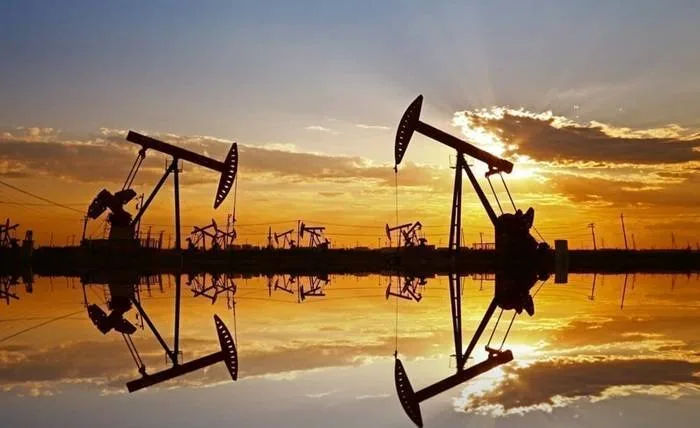Petroleum, often referred to as “black gold,” has played a pivotal role in shaping the modern world economy, powering industries, fueling transportation, and driving technological innovation. From slot ancient origins to its status as a cornerstone of global energy production, the history of petroleum is a saga of discovery, exploitation, and transformation. In this comprehensive article, we delve into the rich and complex history of crude oil, tracing its journey from ancient civilizations to the modern petroleum industry.
- Ancient Origins:
- Early Discoveries: Explore the ancient origins of petroleum, dating back to civilizations such as the Sumerians, Egyptians, and Persians, who observed natural oil seeps and utilized bitumen for waterproofing, construction, and medicinal purposes.
- Early Uses: Discuss the early uses of crude oil and bitumen in ancient societies, including as a source of lighting, heating, and lubrication, as well as in religious rituals, trade, and warfare, where it was used as a weapon or incendiary substance.
- Medieval and Renaissance Period:
- Oil Wells and Distillation: Examine the development of oil wells and distillation techniques during the medieval and Renaissance periods, particularly in regions such as the Middle East, where crude oil was extracted from shallow pits and distilled into kerosene, naphtha, and other valuable products.
- Navigation and Exploration: Highlight the role of petroleum-derived products such as tar, pitch, and lubricants in maritime navigation and exploration, enabling the construction of ships, seals, and waterproofing materials for oceanic voyages and trade expeditions.
- Industrial Revolution:
- Rise of Petroleum Industry: Discuss the impact of the Industrial Revolution on the growth of the petroleum industry, with the increasing demand for energy, lubricants, and chemical feedstocks driving the exploration, extraction, and refining of crude oil on an industrial scale.
- Technological Innovations: Explore key technological innovations in the petroleum industry during the 19th century, including the invention of the oil drill, rotary drilling techniques, and the Bessemer process for refining crude oil into kerosene and other light fractions.
- The Oil Boom:
- Pennsylvania Oil Rush: Trace the Pennsylvania oil rush of the mid-19th century, sparked by the discovery of significant oil reserves in regions such as Oil Creek and Titusville, which led to the establishment of the world’s first commercial oil wells and refineries.
- Standard Oil Company: Discuss the rise of the Standard Oil Company, founded by John D. Rockefeller in 1870, as a dominant force in the global petroleum industry, consolidating control over oil production, transportation, refining, and distribution through vertical integration and aggressive business tactics.
- Global Expansion:
- Spindletop Discovery: Examine the Spindletop oil discovery in Texas in 1901, which heralded the beginning of the American oil boom and transformed the United States into a leading producer and exporter of crude oil, rivaling traditional oil powers such as Russia and the Middle East.
- International Markets: Discuss the expansion of the global petroleum industry to new markets and regions, including Europe, Asia, and Latin America, where multinational oil companies such as Royal Dutch Shell, British Petroleum, and ExxonMobil established operations and competed for market share.
- World Wars and Geopolitics:
- Strategic Resource: Highlight the strategic importance of petroleum as a critical resource during World War I and World War II, where control over oil reserves, refineries, and transportation networks became a decisive factor in military strategy and geopolitics.
- OPEC Formation: Discuss the formation of the Organization of the Petroleum Exporting Countries (OPEC) in 1960, as a coalition of oil-producing nations seeking to assert control rolet over their natural resources, stabilize oil prices, and negotiate favorable terms with foreign oil companies.
- Technological Advancements:
- Refining Processes: Explore advancements in petroleum refining processes, such as catalytic cracking, hydrocracking, and fluid catalytic cracking, which enabled the production of a wider range of petroleum products, including gasoline, diesel, jet fuel, and petrochemical feedstocks.
- Exploration and Production: Discuss technological innovations in oil exploration and production, such as seismic imaging, directional drilling, and enhanced oil recovery techniques, which allowed companies to discover and exploit oil reserves in deeper waters, remote locations, and unconventional formations.
- Environmental and Social Impact:
- Pollution and Climate Change: Address the environmental impact of petroleum extraction, refining, and combustion, including air and water pollution, habitat destruction, and greenhouse gas emissions, which contribute to climate change, global warming, and environmental degradation.
- Social Implications: Examine the social implications of the petroleum industry, including labor conditions, human rights abuses, displacement of indigenous communities, and geopolitical conflicts over oil resources, which have led to protests, activism, and calls for sustainable energy alternatives.
- Transition to Renewable Energy:
- Renewable Alternatives: Discuss the growing interest in renewable energy sources such as solar, wind, hydroelectric, and biofuels as alternatives to petroleum, driven by concerns over climate change, energy security, and sustainability, which are reshaping the global energy landscape.
- Energy Transition: Highlight the ongoing transition from fossil fuels to renewable energy technologies, policies, and investments, which are accelerating the adoption of clean energy solutions and reducing dependence on oil and other finite resources.
- Future Outlook and Challenges:
- Energy Security: Address future challenges and opportunities facing the petroleum industry, including shifts in energy demand, geopolitical tensions, technological disruptions, and regulatory pressures, which will shape the future of global energy security and sustainability.
- Innovation and Adaptation: Explore the role of innovation, research, and collaboration in addressing the challenges of the petroleum industry, such as carbon capture and storage, energy efficiency, and the development of low-carbon technologies, which are essential for a sustainable energy future.
Conclusion:
In conclusion, the history of petroleum is a testament to its enduring significance as a vital resource that has fueled human progress and prosperity for centuries. From its ancient origins to its modern-day dominance, petroleum has shaped economies, societies, and geopolitics on a global scale. As we confront the challenges of a changing climate and transition to a sustainable energy future, the story of petroleum serves as a reminder of the complex interplay between resource extraction, technological innovation, and environmental stewardship in the quest for energy security and sustainability.



